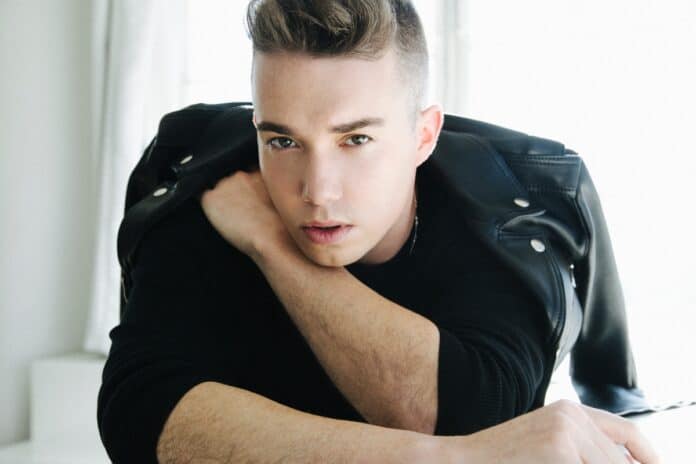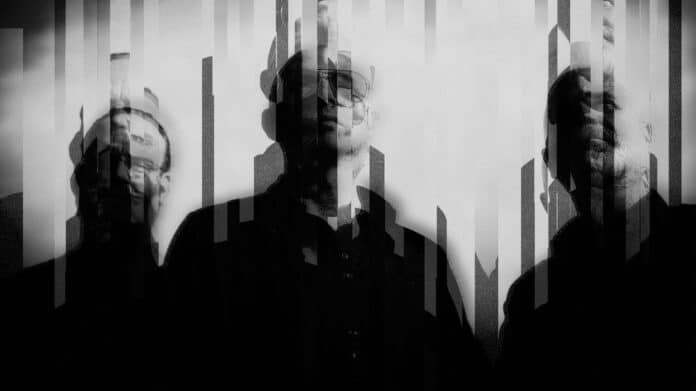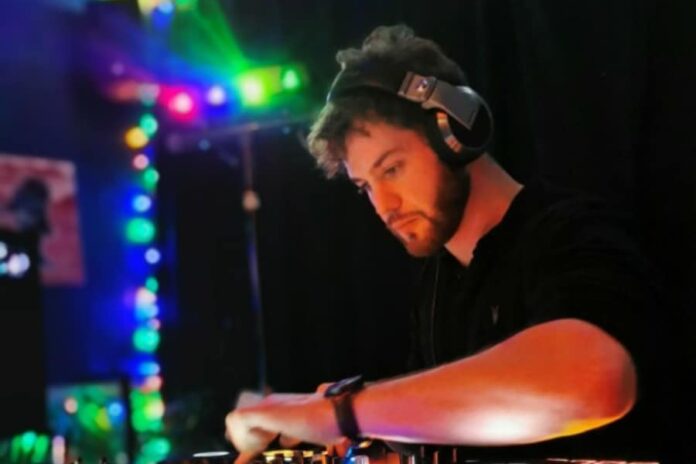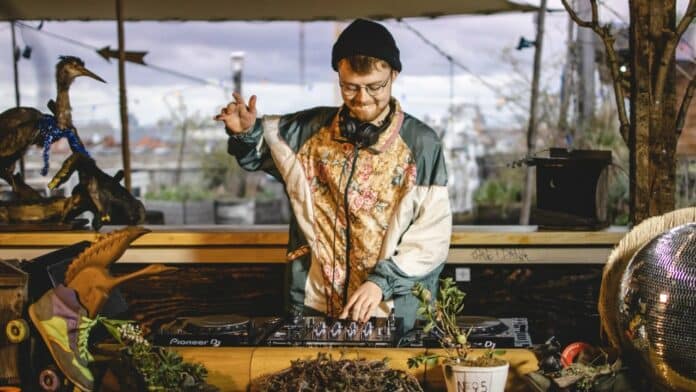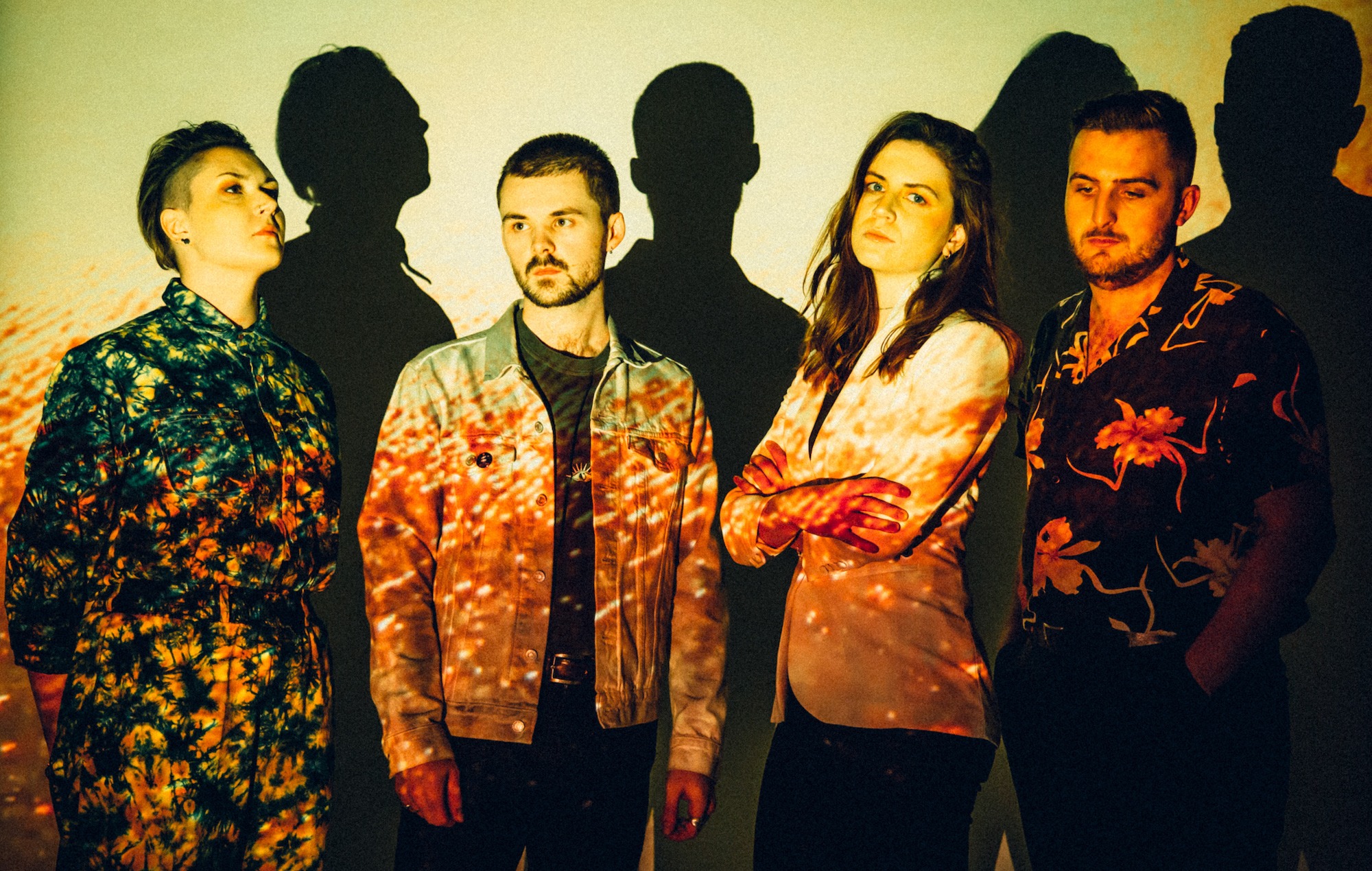
Another Sky’s Catrin Vincent: “There are some men in the music industry who should absolutely not be there”
This week marks the release of the acclaimed debut from Another Sky – a four-piece who started making political and beguiling post-rock together while studying at Goldsmiths University. Their collected experiences of ‘making it’ were poured into ‘I Slept On The Floor‘ – an album preoccupied with childhood trauma, toxic relationships, systemic prejudice and divisive politics that has certainly captured the gloom of these tumultuous times.
“It feels apt to be releasing it now,” singer Catrin Vincent tells NME. “It’s really funny, because when we were listening to the album before Corona I was like, ‘Am I just a Doomsday person?’ Now just feels like a really fitting scenario for our album to come out. It isn’t a good thing, but at least it’s on point!”
To get under the skin of this record, NME speaks to Vincent about overcoming sexism and bullying, the virtues of being wrong, and plans for new music.
Hello Catrin. You talked about how your single ‘All Ends’ deals with overcoming the depression that grew from being bullied as a teenager. How did you find the world’s reaction when you shared those feelings?
“I was amazed. We knew it was a good song, but I didn’t know how much it would resonate. I thought I was alone in those feelings. It was a very depressing time of my life, and we’re discovering more and more that people have these thoughts but keep them hidden. The most common thing with those kinds of feelings is that someone’s got it worse. That feeling isn’t going to help you. You need to look at it from a perspective of relativity. That seems to be a theme throughout the record; you can’t think of things in an individualistic way. You need to look at your place in the world and realise that you can’t escape that. You need to face that who you are is in the context of who everyone else is.”
Do you feel as if music is an extension of that bid to find yourself?
“Yeah, I guess so. As Phoebe Bridgers said, ‘Everyone is everything all the time’. I like that I can’t sum up the one reason why I do this, but I remember that at school my escape was to lock myself in the music rooms. Ultimately music is an escape. Music is medicinal. I don’t feel euphoric when I’m making music, but it feels like a drug that numbs everything. The fact that people like us because we’re making music creates a little bit of an identity crisis. That’s just a matter of moving on and realising who you are. Music was our crutch, and now we can walk!”
So how does it feel to be measured, judged and critiqued for your music now?
“It’s so weird. It’s something that studying music at university prepared us for, but now I’m at peace with what the reviews say. Over the years we’ve had comments and worked with people who are just so mean about the musicians they work with. We’ve been through it and we’re ready. I love what Anthony Fantano from TheNeedleDrop says: you can always put out another body of work, you are never stuck, as long as you’re making it for yourself then you can weather all criticism. Sometimes I want to hear criticism. Sometimes I want to hear what people think. I’m big of self-improvement, which can be a blessing and a curse.”

How does that ‘meanness’ manifest itself?
“Oh God, it’s definitely influenced our second album! Goldsmiths felt like a cocoon. It has its flaws, but it’s quite a left-wing, feminist place to be. I went through this transformation and felt really held and safe in our music. We were making post-rock and felt like nothing could go wrong. The experiences that we had after that just shocked me.”
With everyday sexism in music?
“There are some men in the music industry who should just absolutely not be there. They said things to me like, ‘Oh, you’re not good-looking enough’. When all this was happening I thought it was so cliche. This is what happened to Adele! Of course I can’t escape that. No matter how feminist I make the lyrics, it’s still going to happen to me. You just have to fight it for the women around you and the people coming after you.”
Do you feel that the parameters are shifting?
“Yeah, it’s just so old now! I know everyone says that about every stage of oppression. You know, ‘it’s in the past’. It’s actually cyclical. Margaret Atwood always says that history is not a straight line. That’s totally true, and we have to constantly fight for our freedom. I’m just so done with it all. Now we’re really happy with everyone who we work with. Our label Fiction are constantly championing female artists. It’s just these people who don’t get it and shouldn’t be working in music. I saw a Tweet yesterday that said, ‘It sucks that sociopaths are running the world right now, but the one takeaway is that they are all absolutely miserable’. I’m not enjoying Twitter very much at the moment, but that did make me laugh.”

You told NME last year that “a sense of impending doom is tied to into mental health for our generation”. Do you feel as if this generation is armed to change things?
“We are the generation that will have to face it. There’s no choice. If we don’t face it then really bad things are going to happen. When I was talking to you about ‘generational doom’, that was about the song ‘The Cracks’ from the album – which is paired with ‘All Ends’. You can pair any songs on the album with a common thread, and the common thread between ‘The Cracks’ and ‘All Ends’ is about thinking with a wider perspective about climate change. I was reading the book Freedom Is A Constant Struggle, and there’s a line that says ‘sometimes you have to do the work even though there isn’t a glimmer of hope that it’s possible’. I’m really going to have to try and live by that.”
Is it a hard mantra to follow?
“There was this huge stage in our career as a band where people were saying to me, ‘Oh, you’re just a social justice warrior – you’re never going to make money from music or have a career if you speak out’. Not that we care about that. I’ve always been someone who doesn’t doubt themselves in speaking out about these things, but I completely began to lose all sense of my identity. It just goes to show how much you’re determined by your environment. Things I was laughed at for saying years ago are suddenly becoming mainstream. I’m not trying to be some kind of martyr who’s always been right because I’ve definitely been wrong.”
It’s rare for someone to admit being wrong these days.
“Right? It’s this fear of being wrong that’s stopping progression. No one talks because they’re afraid of being wrong. Everyone’s scared of being cancelled, but actually if someone came along said, ‘Can we change this language a little bit to be more inclusive?’ I would happily do it. I never want to be so arrogant that I think I can’t be wrong. That’s what I was trying to get at on our song ‘The Cracks’. We are cracked human beings, but we have to allow ourselves the opportunity to be wrong so that we can learn something.
“That’s the left. The left is quite progressive, but splintered and fractured because it’s constantly changing views with new information. It’s hard to push out a branded or unifying message because the left’s message is, ‘Oh, we’re probably wrong right now but we’ll figure out a solution as soon as we have new information’. That’s really hard to sell or convince people of. I feel like a lot of the right is just saying, ‘Hate this!’”
And finally, you said that you’ve already been working on your second album?
“Yes, we’ve created a really good bed. We kept saying to everyone that we wanted to write our second album before releasing our first but I realised that was making everyone really anxious about productivity during lockdown. We’re going to work really hard to make sure everything is worthy of a second album. The main thing for me is to be more sure of the theme and what the songs are about. With this debut, we let it be as free as possible. Someone asked me what the album was about and I had no idea. I had to decode my own lyrics. With the second album, I want to be more sure about what I’m saying.”
‘I Slept On The Floor’ by Another Sky is out now.

